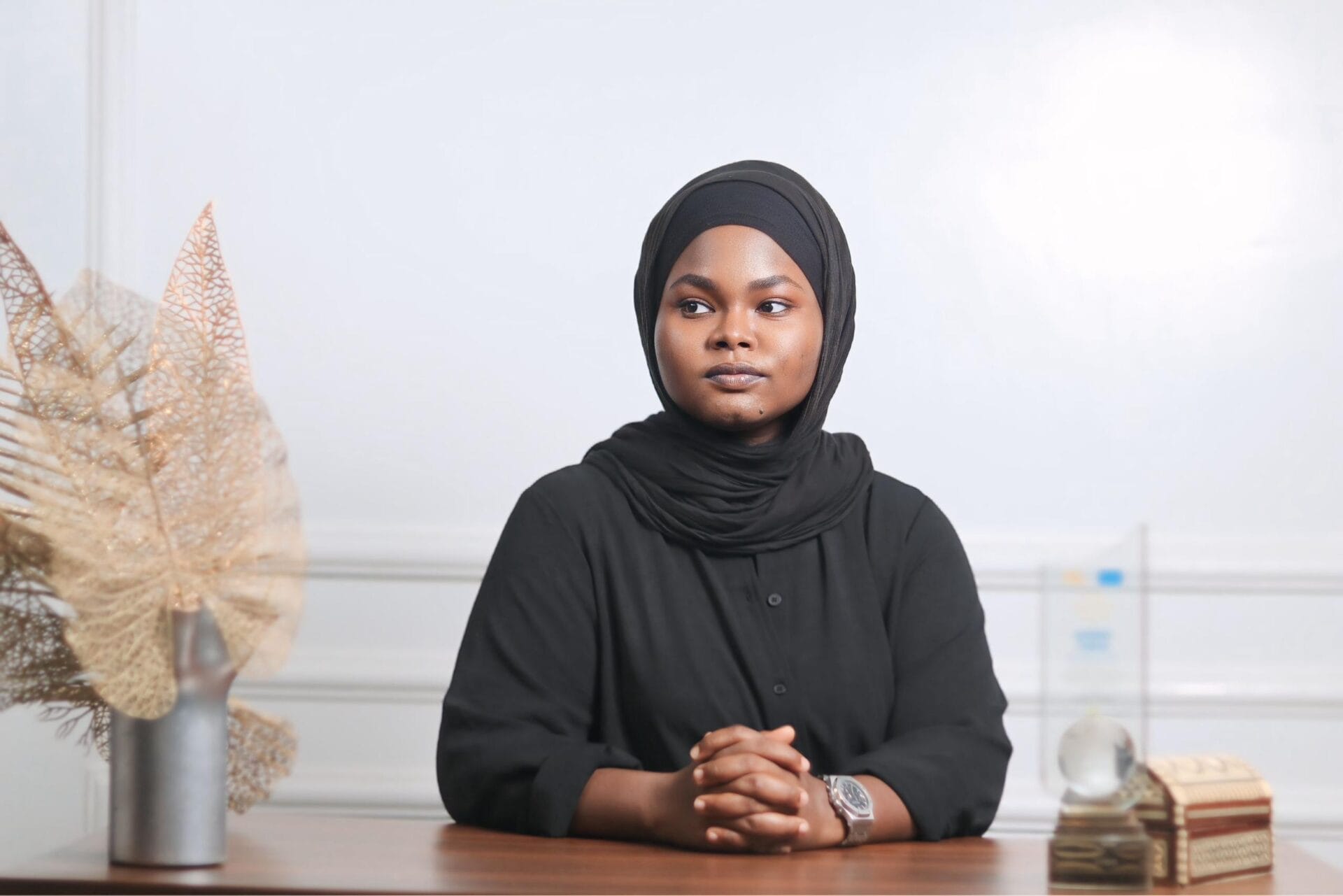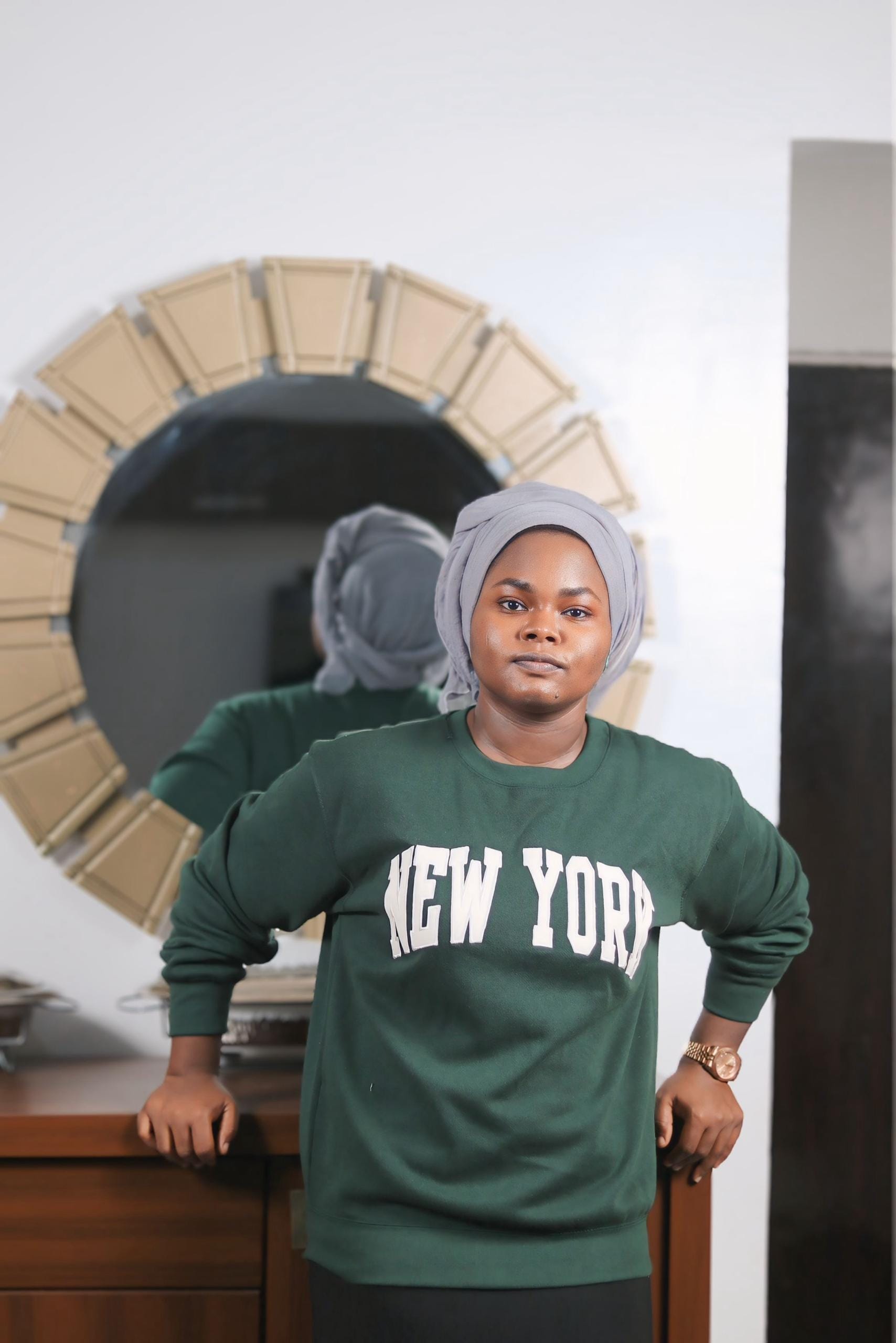In a country teeming with ideas yet tangled in systemic barriers, Aisha Tofa has emerged as a luminous force, a woman who saw the potential in others long before they saw it in themselves.
Aisha was raised in Northern Nigeria and grew up surrounded by brilliant minds whose dreams were often silenced by a lack of access, opportunity, or support.
But instead of walking away, she chose to stay, to build, uplift, and ignite lasting transformation.

Today, she is the founder of Startup Kano Center for Innovation Development and the Women Founders Group, both powerful platforms that have empowered over 500 founders, particularly women, to rise and thrive in Nigeria’s startup ecosystem.
But beyond the metrics and milestones lies something deeper, Aisha’s unwavering belief in inclusive innovation, her hands-on mentorship, and a leadership style forged through failure, curiosity, and community.
Her work hasn’t gone unnoticed. She’s been featured by the United Nations, named among Crest Africa’s Top 50 Voices in African Tech, and honored across global stages, yet, her greatest reward remains the ripple effect of lives changed, dreams rekindled, and voices heard.
Aisha’s story is about breaking ceilings, not just for oneself, but for the many waiting beneath.
In this interview, she shares the journey behind the impact, the spark, the setbacks, the wins, and the bold vision lighting the way forward.
CA: Aisha, you stand at the crossroads of innovation, social impact, and women’s empowerment in Nigeria’s startup ecosystem. Can you take us back to the very first moment that sparked your passion for this journey, what lit that fire, and how did it grow into the incredible movement you’ve built today?
Aisha: The spark came from seeing young people, especially women, with powerful ideas but no access or support. Growing up in Northern Nigeria, I saw how untapped potential was wasted because of systemic barriers.
That pushed me to create Startup Kano Center for Innovation Development, which has grown into a platform supporting hundreds of founders. My journey has been about building inclusive ecosystems.
CA: That’s so powerful. In a space often dominated by uncertainty and rapid shifts, you’ve been described as a catalyst for change, guiding over 500 startups and founders. What was your journey like, and were there any key mentors or role models who guided you along the way?
Aisha: It’s been a journey of risks and deep learning. Working with these founders was amazing because each one has taught me something new, and it’s how I built my experience, understanding a little bit of so many things! I’ve had mentors who shaped purpose-driven leadership, especially women who thrived in tough systems.
But honestly, the startups I support have been my biggest teachers. They’ve shown me that even in uncertainty, there’s always room for courage and creativity.
CA: That kind of deep learning is often born out of tough moments. Mentorship is core to your impact, with thousands of hours invested. Can you share a pivotal failure or deeply humbling experience that reshaped your leadership style or approach to innovation?
Aisha: Absolutely. It has always been a journey of trial! We have launched promising programs that failed, assuming we knew exactly what founders needed, without deeply listening first. So, we learned that solutions built for communities without them often miss the mark.
Since then, we realized that failing is also an experience, and then shifted focus to be more collaborative and user-centered, co-creating with the people we serve. These failures led us to start building models that work and taught us to lead with curiosity, not assumptions.

CA: That level of reflection really shows in your approach. Especially in how you support women founders facing systemic barriers, which isn’t just about giving advice, but sustainably building resilience. How has your background and experience influenced this?
Aisha: Coming from Northern Nigeria, I understand what it means to push through systems not designed for you. That experience taught me that resilience isn’t about “toughing it out”, it’s about creating safe spaces, access, and community.
So, when I support women founders, I don’t just tell them to be strong; I help them build networks, find resources, and see their stories as power. Resilience becomes sustainable when it’s rooted in support, not struggle alone.
CA: You’ve built something truly meaningful. You’ve also become a leading figure in Nigeria’s innovation and startup ecosystem, but every journey has its share of struggles. What kept you motivated during the toughest early days?
Aisha: What kept me going was purpose. I wasn’t building just for me, I was building for people who had never been invited into the room. In the early days, there was little or no funding and information, limited recognition, and lots of doubt.
But every time I saw a young founder thrive or a woman break through a barrier, it reminded me why I started. This impact fuels my fire and keeps me grounded in the bigger vision. So, my story cannot be told if people around me are not winning.
CA: And win they are! Through your leadership at Startup Kano and the Women Founders Group, you’ve created spaces for learning, connection, and inspiration. How does it feel knowing your work is shaping and inspiring the next generation of entrepreneurs and changemakers?
Aisha: It’s humbling and deeply fulfilling. Every time I see a young person start a business, pitch confidently, or turn an idea into impact, I’m reminded that this work is bigger than any one of us.
I don’t take it lightly, it’s a responsibility and a privilege to help build the bridges I once needed myself. Watching others rise because of something we created, that’s the real reward.
CA: You’re a multiple award-winning woman in tech, including receiving the United Nations Feature Award for DigitALL and being named among Crest Africa’s Top 50 Voices in African Tech. Looking back, what do these honors mean to you personally and for the work you’re passionate about?
Aisha: It means we are doing the right thing! They’re affirmations, not just of my work, but of the partners, stakeholders, communities, and young people I represent. Personally, they remind me that impact doesn’t go unnoticed, even when it feels invisible.
But more importantly, they give credibility to the mission, helping open doors for others and proving that innovation from places like Northern Nigeria matters. The recognition fuels me, but it also raises the bar to keep showing up with purpose and integrity.
CA: With so much already achieved, I can only imagine what’s next. What are you currently working on? Any exciting projects or upcoming milestones?
Aisha: I am currently transitioning, and with the support I am already giving to the private sector and the government, I’m focused on scaling impact across Africa. We’re curating Kano State’s first-ever UNGA side event this September, spotlighting innovation, climate action, and investment.
I’m also deepening work around women’s economic and financial empowerment, and exploring global partnerships to expand the reach of the Center for Innovation Development and the Women Founders Group. The goal is clear: build stronger systems, unlock capital, and keep pushing boundaries for the next generation of changemakers.
CA: That’s exciting and deeply needed. Now, if you had the chance to bust a myth, what’s one big misconception about innovation or startups in Nigeria that you’d like to correct?
Aisha: That innovation only happens in big cities and only in tech. The truth is, some of the most powerful, community-driven solutions are coming from overlooked places and people.
Innovation in Nigeria is deeply local, often informal, and incredibly adaptive. We need to stop gatekeeping what counts as innovation and start investing in the full spectrum, from grassroots to high-growth startups.

CA: Mic drop! Lastly, if you could give one piece of advice to someone aiming to create real social impact through technology and entrepreneurship, what would it be?
Aisha: Start with the people, not the product. Listen deeply, solve real problems, and build with, not for, the communities you care about. Tech is just a tool.
Impact comes from empathy, consistency, and the courage to keep going even when it’s hard. If you stay rooted in purpose, the solutions and the success will follow.




